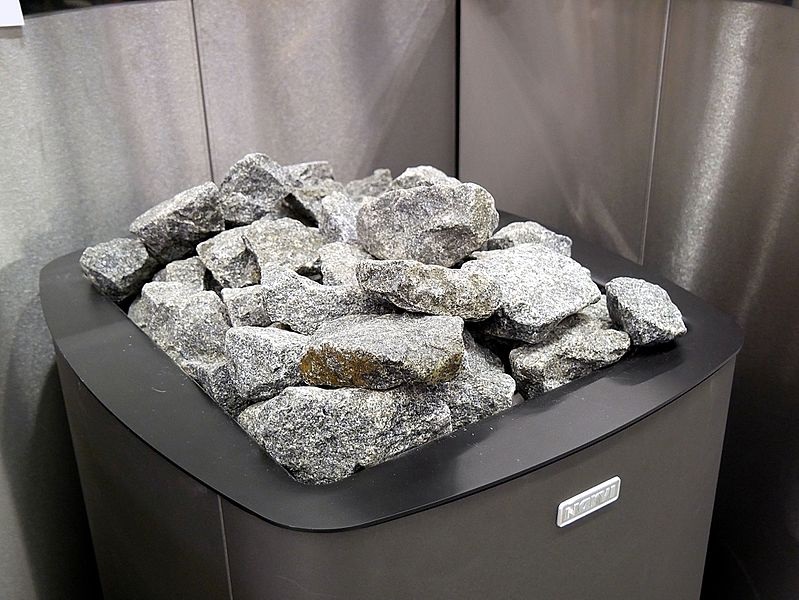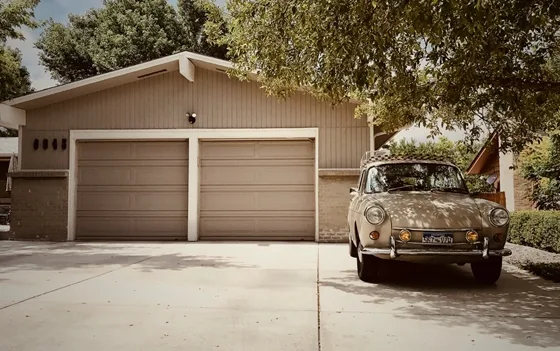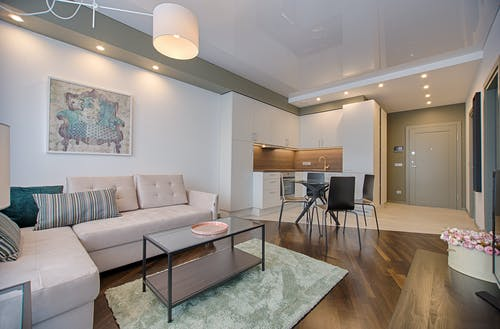The sauna heater is the heart of every sauna and is responsible for ensuring that the sauna fulfills its purpose.
You can choose between a mini sauna stove, Finnish stove, wood-burning stove, or bio-stove.
But that’s far from being the end of it because there are a variety of accessories to match the ovens. This means that you have an infinite number of trading options.
Please pay close attention to the proportionality of the sauna heater to the size of your sauna cabin, because a sauna heater that is too weak takes a long time to heat up the cabin and consumes a lot more electricity.
If it is a little bigger than necessary this is usually not a problem, but if it is much too big in terms of performance, it can actually have a negative effect.
It can then happen that the ceiling of the sauna cabin gets too hot and the heater switches itself off while it has not yet reached the desired temperature on the bench.
In the description of the sauna heater, you will usually always find information on the appropriate cabin size.
When specifying the cabin size, always calculate with the mean value, as aspects such as the surroundings of the sauna cabin (e.g. outside or inside) play an important role.
11For example, 5 m³ is the mean value of 9-14 m³ (9.0 kW). If the size of your sauna is smaller, that’s fine.
However, if your sauna cabin has a size of, for example, 13 m³, you should take a higher output (12 kW). You can read here sauna heater reviews.

Why is a Good Sauna Heater So Important?
A heater has primarily the task of heat the sauna room and reheats when the temperature drops, thereby ensuring the well-being of the sauna.
The sauna heater must not be too strong or too weak. In order to enable a constant temperature, the heater needs a suitable sauna control.
Sauna controls are both integrated into the heater and external.
You can find more information on sauna controls in our article “Which sauna controls for your sauna? “.
What Energy Can be Used?
There are three variants with which you can operate your sauna heater: electricity, wood, and gas. We will briefly introduce these 3 possibilities.
Electricity
This category has the largest selection of sauna heaters, as they are the most widely used sauna heaters (Finnish and bio sauna) in Central Europe. Available both privately and commercially.
Wood
Is mostly only used in outdoor saunas and is more common in Russia and Finland. A bio sauna with wood is not possible.
Gas
When using gas, some safety precautions must be taken, which is why it is only used in large and commercial saunas (higher output).
Which Type of Fastening is the Best?
Depending on how much space your sauna cabin has to offer, different types of fastening for the sauna heater come into question.
Floor Standing Oven
many different variants and shapes such as normal oven, globe shape, or tower heater. Finnish sauna or bio sauna also possible with integrated control on request.
Wall Heater
this variant is very cheap and available as a Finnish sauna heater and bio sauna heater.
Due to mass production, these ovens are available for little money, and if required, they are also available with an integrated control system.
Rear Wall or Under-Bench Heater
The sauna heater is practically hidden in the sauna cabin and is therefore hardly noticeable.
The heat distribution is great, but the price for such an oven is extremely high. It is more likely to be installed in luxury saunas or if no other stove is possible. Possible sauna type: Finnish, organic.
Read Also:
Finnish Sauna or Bio Sauna?
Before you buy a sauna heater, you should first consider which type of sauna you would like to enjoy. You can choose between a Finnish sauna and a bio sauna, which offer different temperatures and degrees of humidity.
Finnish Sauna
classic variant with temperatures from 85 to 110 ° C and relative humidity of around 10%.
Bio-Oven (Combi Oven)
The temperature in the combi oven is lower than in a Finnish sauna, but the evaporator ensures a high level of humidity.
However, you also need a suitable controller for the evaporator. The temperatures of a combi oven are 40 to 70 ° C and the humidity is 10 to 60% relative humidity.
What is the Difference Between a Private and a Commercial Sauna?
In private use, the sauna is used on average for 2 to 3 hours per week. A commercial sauna runs all day, among other things.
As a result, the materials are stressed over the long term, which is why significantly higher quality and more durable materials have to be used in a commercial sauna.
What Sizes do the Different Sauna Heaters Offer?
- Electric ovens: 2.3 – 36 kW, size of the sauna cabin: 3 – 75 m³
- Wood stoves: 16 – 40 kW, size of the sauna cabin: 6 – 50 m³
- Gas stoves: 9 – 108 kW, size of the sauna cabin: 10 – 200 m³
How do I Know the Good Quality of a Sauna Heater?
Basically, you can tell from the heating rods whether a sauna heater can offer a long service life, as heating rods are worn parts and manufacturers do not give any guarantees.
You should also buy the oven from a well-known manufacturer and seek advice from a specialist dealer.
Sauna Stones
The sauna stones influence the climate in the sauna. It is said that more sauna stones create a better climate, but that can also backfire.
Too many sauna stones ensure a longer heating-up time and can destroy the heating rods of the sauna heater if the settlement is poor.
Place the sauna stones loosely in the heater without them pressing against the heating rods.
You can also read our relevant article on sauna stones: “Sauna stones – what are the differences? “.
Sauna stones should be changed every two years at the latest, because only with good stones can you benefit from a sauna session with the best climate.
How Much Does a Sauna Heater Cost?
With such an investment you should always compare the acquisition costs with the maintenance costs. The maintenance costs depend on how often the sauna is in use.
The acquisition costs for private use are around 150 to several thousand euros. In commercial (smaller hotels, for example) use at 800 to 15,000 €, and for even larger commercial facilities (fun pools, public saunas) between 5,000 and several 10,000 €.
The maintenance costs for private use are around 5 – 10 € per week.
Accessories for the Sauna Heater
- Oven protection grille
- Sauna stones
- Sauna control
- Sauna accessories such as a bucket, ladle, hourglass, thermometer, hygrometer, sauna infusions
- Sauna lighting










